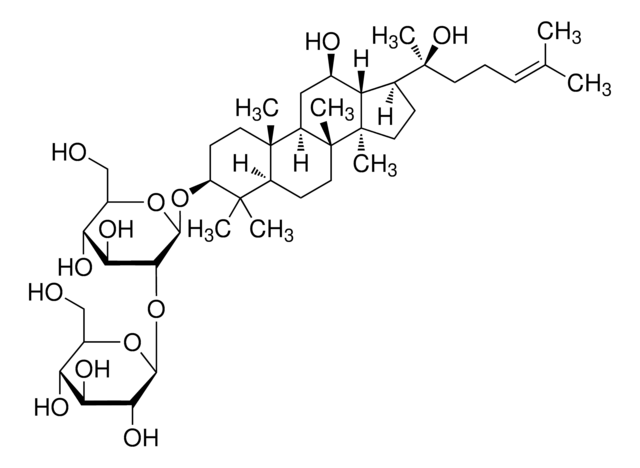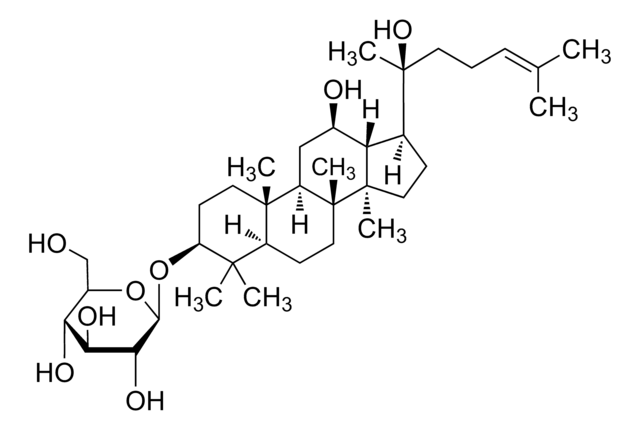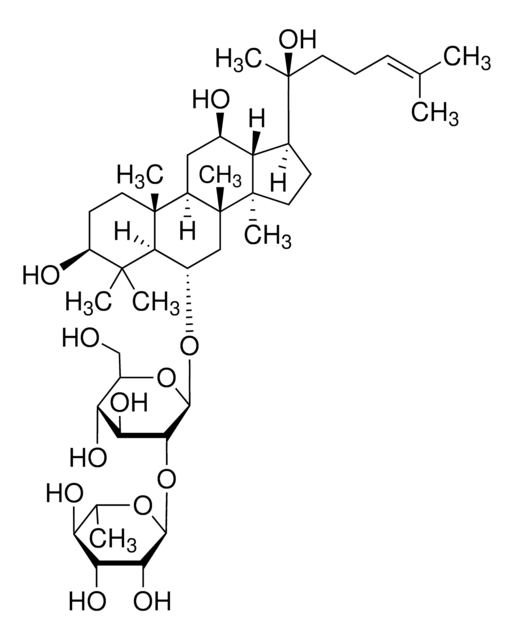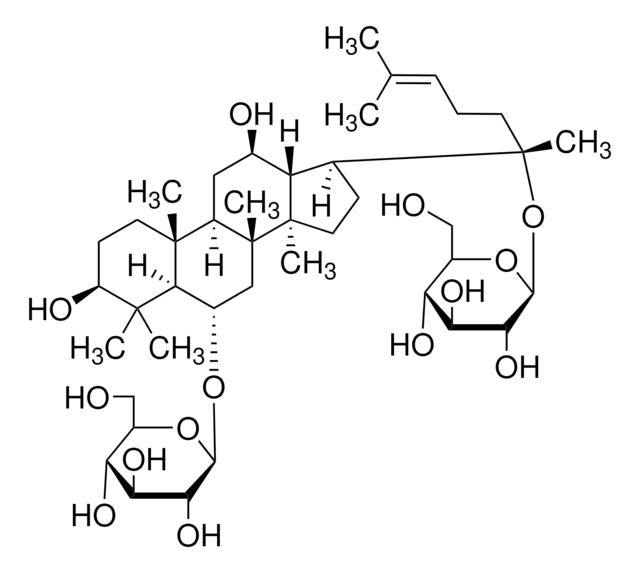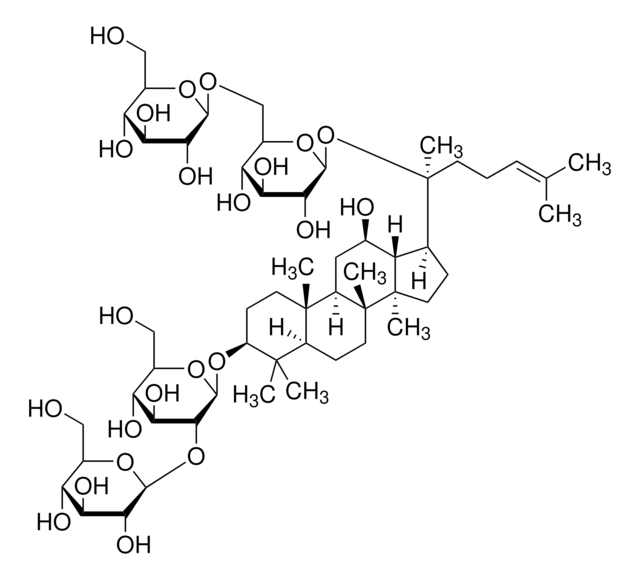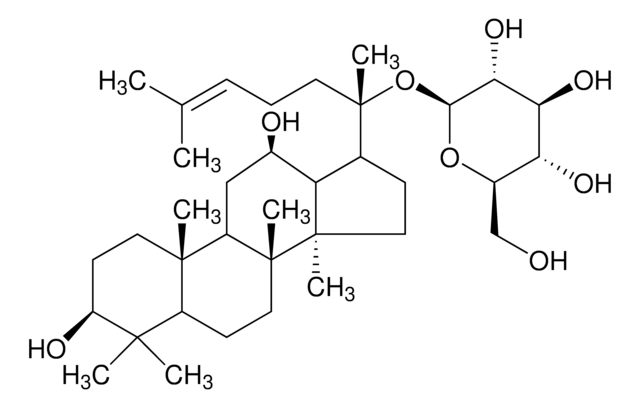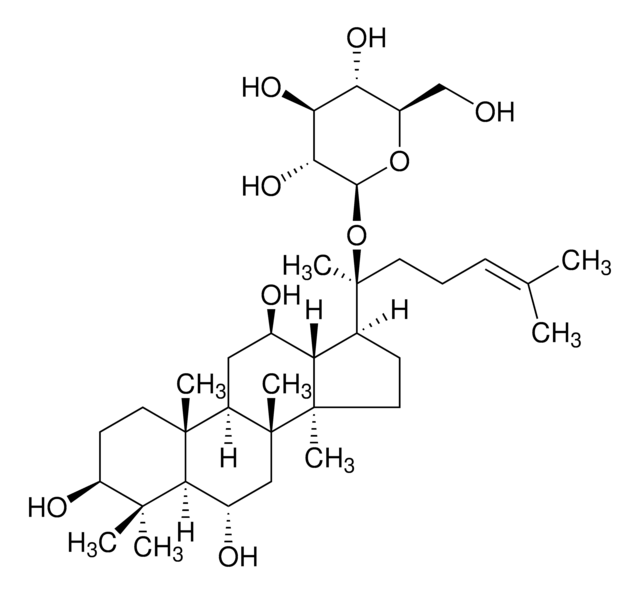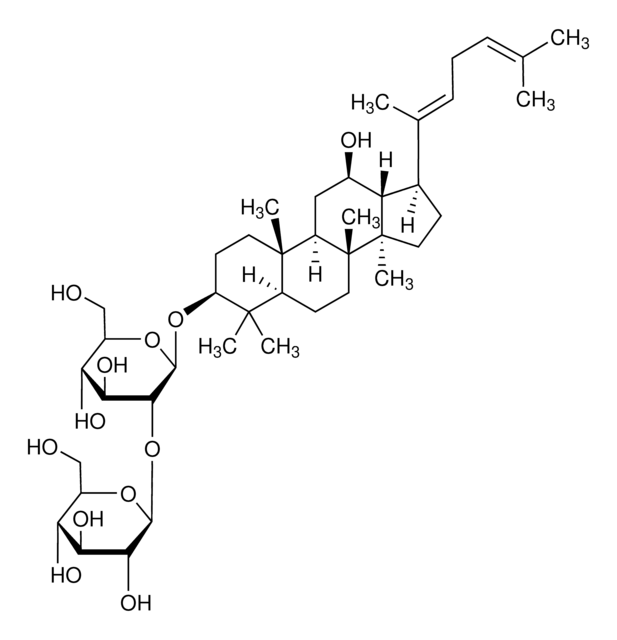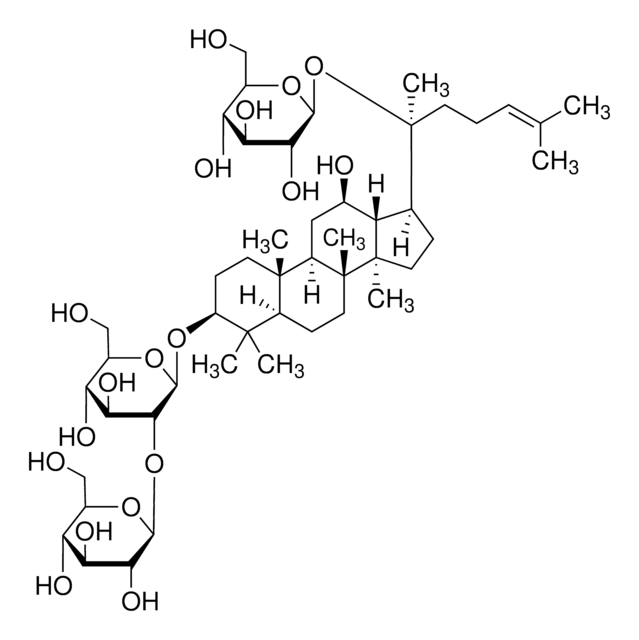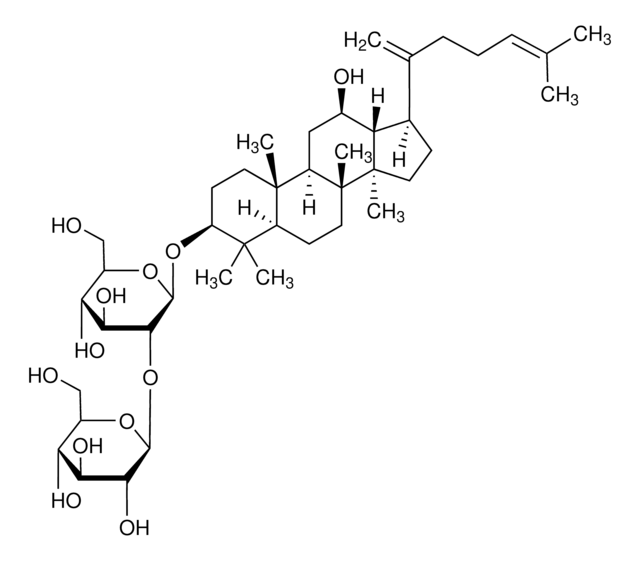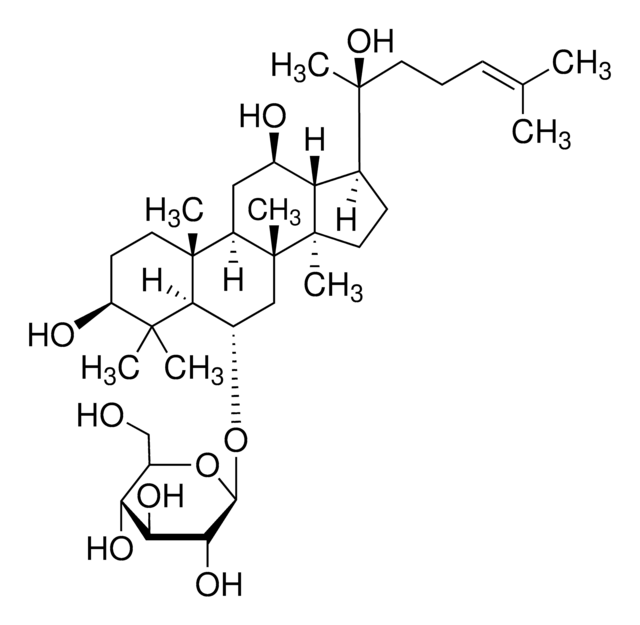SML0184
Ginsenosid Rg3
≥98% (HPLC)
Synonym(e):
(3β,12β)-12,20-Dihydroxydammar-24-en-3-yl-2-O-β-D-glucopyranosyl-β-D-glucopyranosid, 20(S)-Ginsenosid-Rg3
About This Item
Empfohlene Produkte
Qualitätsniveau
Assay
≥98% (HPLC)
Form
powder
Optische Aktivität
[α]/D +10 to +20°, c = 1 in methanol
Lagerbedingungen
desiccated
Farbe
white to beige
Löslichkeit
DMSO: ≥5 mg/mL
Lagertemp.
2-8°C
SMILES String
C\C(C)=C\CC[C@](C)(O)[C@H]1CC[C@]2(C)[C@@H]1[C@H](O)C[C@@H]3[C@@]4(C)CC[C@H](O[C@@H]5O[C@H](CO)[C@@H](O)[C@H](O)[C@H]5O[C@@H]6O[C@H](CO)[C@@H](O)[C@H](O)[C@H]6O)C(C)(C)[C@@H]4CC[C@@]23C
InChI
1S/C42H72O13/c1-21(2)10-9-14-42(8,51)22-11-16-41(7)29(22)23(45)18-27-39(5)15-13-28(38(3,4)26(39)12-17-40(27,41)6)54-37-35(33(49)31(47)25(20-44)53-37)55-36-34(50)32(48)30(46)24(19-43)52-36/h10,22-37,43-51H,9,11-20H2,1-8H3/t22-,23+,24+,25+,26-,27+,28-,29-,30+,31+,32-,33-,34+,35+,36-,37-,39-,40+,41+,42-/m0/s1
InChIKey
RWXIFXNRCLMQCD-JBVRGBGGSA-N
Suchen Sie nach ähnlichen Produkten? Aufrufen Leitfaden zum Produktvergleich
Anwendung
Biochem./physiol. Wirkung
Leistungsmerkmale und Vorteile
Signalwort
Warning
H-Sätze
P-Sätze
Gefahreneinstufungen
Acute Tox. 4 Oral
Lagerklassenschlüssel
11 - Combustible Solids
WGK
WGK 1
Flammpunkt (°F)
Not applicable
Flammpunkt (°C)
Not applicable
Analysenzertifikate (COA)
Suchen Sie nach Analysenzertifikate (COA), indem Sie die Lot-/Chargennummer des Produkts eingeben. Lot- und Chargennummern sind auf dem Produktetikett hinter den Wörtern ‘Lot’ oder ‘Batch’ (Lot oder Charge) zu finden.
Besitzen Sie dieses Produkt bereits?
In der Dokumentenbibliothek finden Sie die Dokumentation zu den Produkten, die Sie kürzlich erworben haben.
Kunden haben sich ebenfalls angesehen
Artikel
We offer many products related to potassium channels for your research needs.
Unser Team von Wissenschaftlern verfügt über Erfahrung in allen Forschungsbereichen einschließlich Life Science, Materialwissenschaften, chemischer Synthese, Chromatographie, Analytik und vielen mehr..
Setzen Sie sich mit dem technischen Dienst in Verbindung.